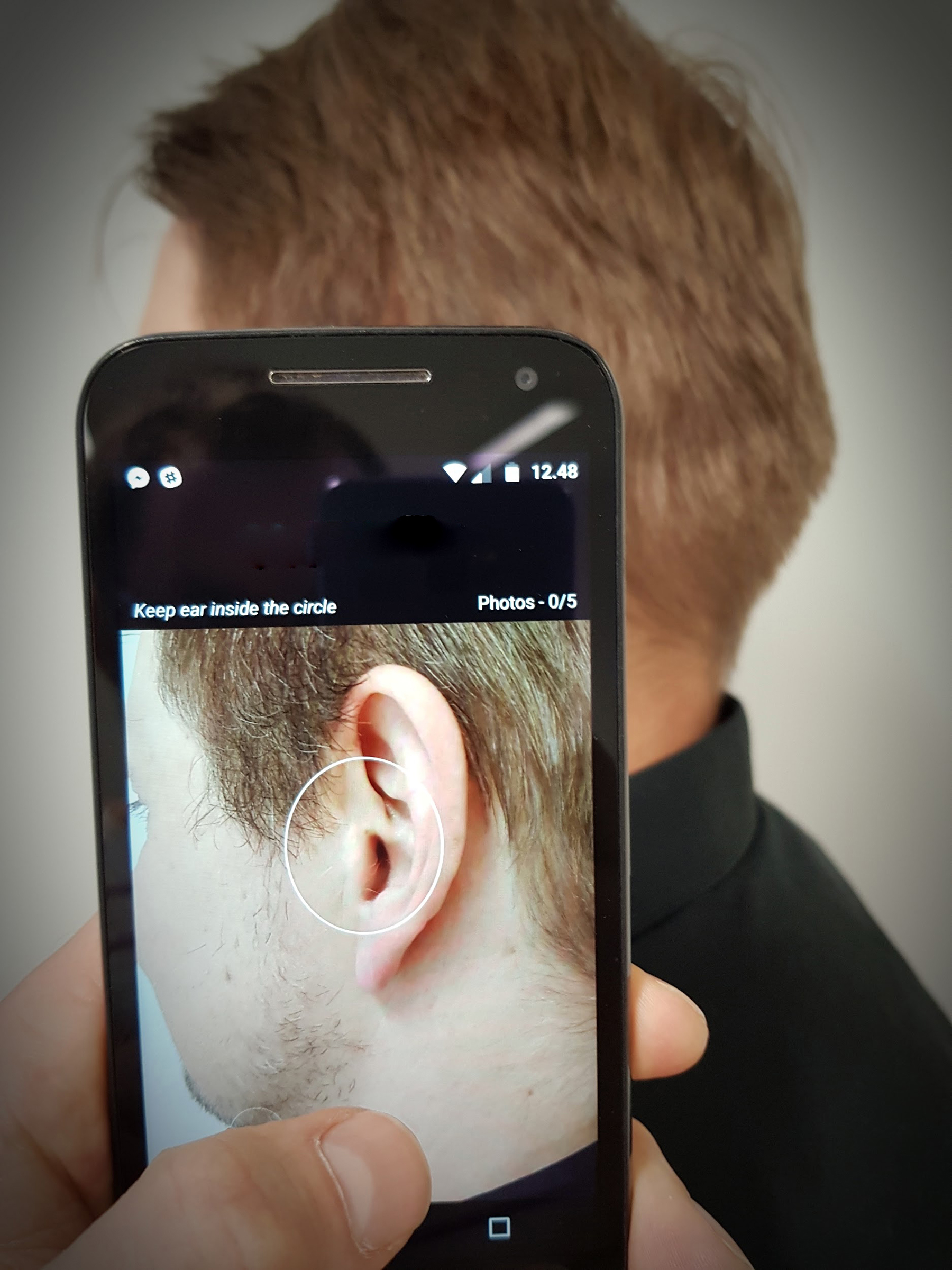Genelec and IDA Audio to Redefine Immersive 3D Audio for Professional Headphone Users

— Jointly-developed technology available for demo at IDA Audio’s booth (#961) at the AES Convention at the Javits Center in New York —
NATICK, MA — Genelec, the world leader in professional audio monitoring, and IDA Audio, a pioneer in head-related transfer function (HRTF) modeling technology, are joining forces to create the world’s first truly accurate immersive audio experience for professional headphone users. Accessible via a software application for smartphone, the jointly-developed technology scans the user’s ears, upper body and head to create a Cloud-based customized personal audio profile, which can then be loaded into the user’s DAW via a choice of third-party plug-ins.
Until now, even the most professional headphones have been limited in their reproduction of 3D audio because of the proximity in a headphone of the audio source, which eliminates the acoustical influence of the listener’s ears and head, and therefore the cues that create the sense of audio source location and distance relative to the listener. With this new software application, professionals and enthusiasts alike will be able to use their favorite pair of headphones to experience the same realistic, truly accurate 3D audio presentation for which all Genelec monitors are known.
After decades of research by audio experts, immersive audio is now rapidly becoming a mainstream reality, revolutionizing cinema, live events and the world of gaming and augmented/virtual reality. Yet, for audio professionals working on immersive content, the challenge has been to create reliable reference monitoring systems that can accurately reproduce the spatial experience of everyday life. Recently, Genelec introduced The Ones – Ultimate Point Source monitors with controlled directivity both in the horizontal and vertical planes, making them ideal for spatial audio reference monitoring.
Professionals using headphones for 3D audio face a compromise. Having spent years training themselves to listen critically, using headphones means the 3D information does not get reproduced accurately. Now, in collaboration with IDA Audio, Genelec will restore the ability to critically monitor 3D audio over headphones, using personal head-related transfer functions (HRTF), acquired by modeling the listener and then delivered through the above-mentioned Cloud service.
“Everyone is unique when it comes to hearing – the ways in which our brains perceive the world around us are shaped by our physical features, determining how we hear,” explains Siamäk Naghian, CEO of Genelec. “No two people share the same HRTF, because the size and shape of each person’s head, ears and upper torso all affect how that individual experiences the sounds around them. This makes it extremely difficult to monitor 3D audio over headphones, since using headphones means you remove the effects of those physical features – and this adversely affects the sound.”
Naghian continues, “The answer of course is to 3D-scan each individual listener and then map their own unique HRTFs. This enables reproduction of those physical effects when headphones are used. Just as an expertly tailored suit fits you perfectly, so does your own personal HRTF. This means that you can precisely hear in three dimensions through any high-quality headphones that you choose to use.”
In the past, the way to acquire unique HRTF profiles was to fit miniature microphones in your ears. You would have to remain completely still inside an anechoic chamber for an extended period of time to take the necessary measurements. Thanks to dedicated computer modeling, those days are finally over. Using their smartphone’s camera, users will be able to scan themselves, gathering sufficient data for IDA Audio and Genelec to accurately 3D-model and then create the unique HRTF filter set for personal rendering of 3D audio. Users will also be able to choose to undertake the scan with a designated third party if preferred. Based on years of comprehensive research, IDA Audio’s modeling algorithms provide precision that matches Genelec’s dedication to the accuracy and acoustic transparency of reproduced sound.
“The audio we listen to should match our experience of the real world,” continues Naghian. “This announcement is about contributing in a very positive way to the daily life of our users. Immersive audio will open up a new dimension within the listening experience. Together with IDA Audio, we are excited to take this radical step forward into the future.”
“For us, cooperating with the world leader in studio monitoring is a fantastic opportunity,” added Antti Vanne, CEO of IDA Audio. “We believe that in-room listening allowing head movements will remain the fundamental method of reference monitoring, but achieving true-to-life spatial reproduction over headphones will enable a much broader audience to enjoy natural and immersive audio experiences. With Genelec, we are breaking new ground and reaching towards untouched horizons in the world of audio.”
The jointly-developed software application will be available to professional users in early 2018 as a download directly from the Genelec website, while visitors to this week’s AES Show in New York will be able to get a personal demonstration on the IDA Audio (OwnSurround) Booth #961. Genelec themselves are located at Booth #322.
Photo caption: Accessible via a software application for smartphone, this technology, jointly developed by Genelec and IDA Audio, scans the user’s ears, upper body and head to create a Cloud-based customized personal audio profile, which can then be loaded into the user’s DAW via a choice of third-party plug-ins.
Get the TV Tech Newsletter
The professional video industry's #1 source for news, trends and product and tech information. Sign up below.
